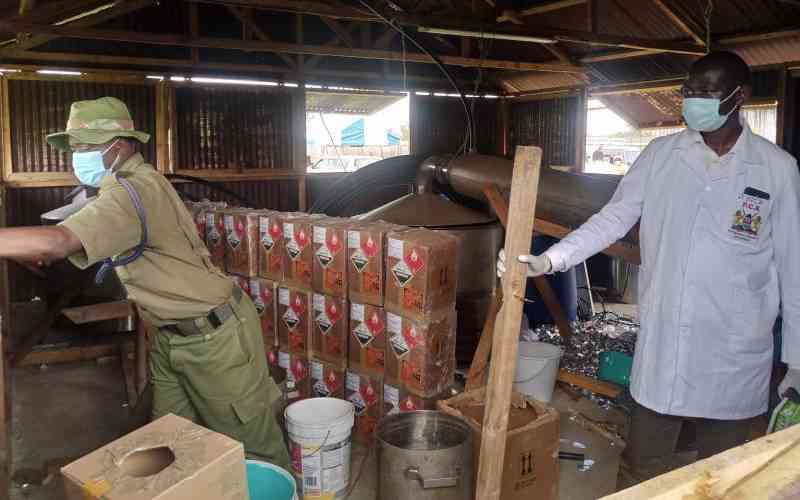
In modern healthcare, integrating various disciplines is essential for effective and comprehensive patient care. Among these, nutrition plays a pivotal role in improving health outcomes, reducing recovery time, and enhancing quality of life. This is, especially critical in managing the dual burden of communicable and non-communicable diseases that are prevalent in Kenya.
Non-communicable diseases (NCDs) alone account for 53 per cent of hospital admissions in Nairobi, contributing to 33 per cent of total mortality, according to the Ministry of Health. Despite these stark statistics, nutritional care remains one of the most overlooked aspects of medical treatment in Kenya. This oversight not only hinders recovery, but also increases the financial and emotional burden on patients and their families.
Overlooked role of nutrition
Nutrition is more than a lifestyle choice; it is a cornerstone of health. According to the World Health Organisation (WHO), malnutrition contributes to nearly half of all deaths in children under five globally. In Kenya, malnutrition exacerbates the rising burden of NCDs, such as diabetes, hypertension, and cancer, which require nutritional interventions for prevention and management.
For instance, diabetic patients need carefully managed diets to regulate blood sugar levels. Cancer patients undergoing chemotherapy benefit from high-protein and high-calorie diets to combat weight loss. Similarly, post-surgical patients require adequate nutrients to support wound healing and recovery. Ignoring these needs increases complications, prolongs hospital stays, and worsens outcomes. A 2020 report by the Kenya Health Policy Framework linked poor dietary habits and malnutrition to 20 per cent of the country’s disease burden. Despite such findings, most Kenyan healthcare facilities treat nutrition as an afterthought, focusing instead on pharmacological interventions.
Systemic gaps in hospitals
The failure to integrate nutrition into healthcare is glaring. A 2018 study published in the East African Medical Journal revealed that only 30 per cent of Kenyan hospitals involve nutritionists or dietitians in patient care. Most hospitals lack structured nutritional care programmes, leaving patients to navigate this critical aspect of recovery alone.
Kenya’s healthcare policies acknowledge the importance of nutrition. Twelve out of the 20 leading causes of morbidity and mortality in the country are nutrition-related, according to the Kenya Health Policy. Yet, many hospitals view nutrition as secondary to medical treatment.
This oversight is partly due to a shortage of qualified nutritionists in hospitals. Kenya has a registered workforce of 13,200 nutritionists and dietitians, but 7,000 remain unemployed, according to the Kenya Nutrition and Dietetics Institute (KNDI). This disconnect highlights a systemic underutilisation of skilled professionals. Moreover, many hospitals lack dedicated nutrition departments. Where they do exist, they are often underfunded and understaffed, particularly in public hospitals.
Consequences of neglecting nutrition
Neglecting nutritional care has significant consequences. Malnourished patients face longer recovery times, higher complication rates, and increased mortality. For example, surgical patients who are malnourished are three times more likely to develop post-operative infections, according to a study by the British Medical Journal (BMJ).
Some Kenyan hospitals are making strides in integrating nutrition into healthcare. Institutions, such as Aga Khan University Hospital and Nairobi Hospital offer nutrition services, such as tailored dietary advice and meal plans for conditions, such as diabetes and cancer. However, these services are often unaffordable for low-income families without comprehensive health insurance.
Nutrition is not an auxiliary service, but a fundamental pillar of healthcare. Kenyan hospitals must shift from a reactive approach to one that prioritises prevention and holistic patient management. Bridging this gap will improve patient outcomes, reduce healthcare costs, and strengthen the nation’s economic and social resilience.
Stay informed. Subscribe to our newsletter
 The Standard Group Plc is a
multi-media organization with investments in media platforms spanning newspaper
print operations, television, radio broadcasting, digital and online services. The
Standard Group is recognized as a leading multi-media house in Kenya with a key
influence in matters of national and international interest.
The Standard Group Plc is a
multi-media organization with investments in media platforms spanning newspaper
print operations, television, radio broadcasting, digital and online services. The
Standard Group is recognized as a leading multi-media house in Kenya with a key
influence in matters of national and international interest.
 The Standard Group Plc is a
multi-media organization with investments in media platforms spanning newspaper
print operations, television, radio broadcasting, digital and online services. The
Standard Group is recognized as a leading multi-media house in Kenya with a key
influence in matters of national and international interest.
The Standard Group Plc is a
multi-media organization with investments in media platforms spanning newspaper
print operations, television, radio broadcasting, digital and online services. The
Standard Group is recognized as a leading multi-media house in Kenya with a key
influence in matters of national and international interest.









